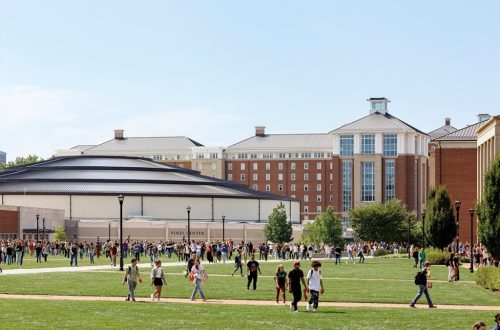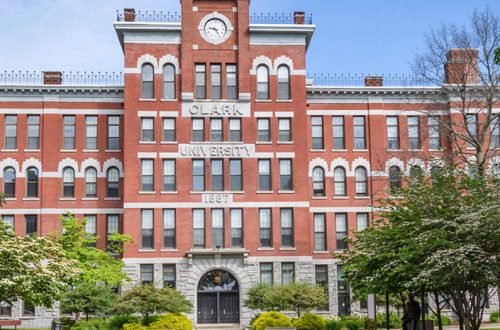How To Get Into Drexel Medical School: Requirements And Strategies
Part I: Introduction
Drexel University College of Medicine is a top-ranked medical school that offers resources for all students.
The school is one nine Pennsylvania medical schools. It boasts the highest student application rates without compromising its mission of educating dedicated students. It is important to consider how the curriculum of the MD program aligns with your academic goals if you are interested in joining their ranks.
Drexel Med School is conscious of its rich past and trace its roots back to the merger between two former medical institutions, Hahnemann Medical College, which was founded in 1848 and Women’s Medical College in 1850. This latter institution was the first female medical college in the world. A significant number of students from nontraditional backgrounds continue to attend the school’s programs, which promote diversity and inclusion.
This blog will cover Drexel’s admissions requirements and strategies to help you strengthen your application.
Part II: Drexel Medical School MD programmes
Drexel has many options for those who want to pursue a MD.
-
The 4-year MD Program, the classic.
-
The MD/PhD Program administered by the College of Medicine.
-
The MD/MPH Program, which is offered by Drexel’s Dornsife School of Public Health & College of Medicine
-
The MD/MBA Programme, administered by Drexel University’s Lebow College of Business.
-
The MD/MS Program is offered by the College of Medicine
This guide will show you how to apply for the traditional MD degree program.
Drexel College of Medicine
The tuition rate for full-time MD student is $31,282 each semester in the 2022-2023 academic years. Drexel advises students to include all costs of tuition, including program fees and miscellaneous university fees.
Drexel also provides tuition rates to part-time students for MDs who are interested in alternative programs to the standard four-year program. Drexel has a tuition and financial aid page that provides detailed information about tuition.
Drexel College of Medicine students
These are the statistics that Drexel Med School has published for its class 2026:
-
Female: 59%
-
Male: 41%
-
Black, Hispanics or Native Hawaiians: 17%
-
Students who are not traditional 24%
-
About a third of Pennsylvanians.
-
Out-of-state residents: 71%
-
87% of science majors are students
-
Students with other degrees are 13%
3: How difficult is it for Drexel Medical School to admit you?
Drexel School Admissions Statistics
Drexel received more than 16,000 applications from 2025 students and had to conduct around 1,800 interviews in order to be admitted into the MD program. 303 became first year students by the end.
Drexel has a 6.1% acceptance rate, so you can be sure that you’ll be competing against other talented applicants if Drexel Medical School is your choice.
These are the academic statistics from the College of Medicine for the class of 2026
-
The mean GPA is 3.66.
-
The mean MCAT score is 511.
Drexel School Admissions
Drexel requires that applicants must have taken their MCAT within three-years of submitting materials. If you are applying to Drexel in 2023, the test score must be generated by 2020. Drexel examines all scores.
Drexel is no longer requiring premedical coursework. Instead, Drexel reviews applicants by looking at key academic and/or professional "coursework/experience competencies" as listed on the admissions website. Drexel encourages applicants in certain areas to show proficiency. Below is a summary:
-
Biology – College Coursework: 1 year
-
Biology: Two academic years are suggested, which includes biochemistry.
-
Physics: A course is recommended
-
Laboratory Experience: One Year of Experience in Biology, Chemistry or Physics is Recommended
-
Statistics or probability:One course like biostatistics would be a good idea.
-
English literature/communication/intensive writing experience
-
Social and behavioral sciences
-
Service orientation/community service
-
Meaningful experience in clinical medicine
Drexel encourages applicants who are able to do so to send a pre-medical advisory or "composite” letter. They will also accept letters from college-level professors, including two science, one nonscientific, and professional letters.
Application for the MCAT must be completed.
Drexel is not open to international applicants for its MD programs. Only U.S. citizens are admitted.
(Suggested reading – Medical School Requirements: A Definitive Guide)
Drexel Medical School Application Timeline
AMCAS is used to process MD Program applications at Drexel. After you submit your application, the admissions staff will send the MD program’s Supplemental Application via email. These are important dates and deadlines that you should know when applying to Drexel.
-
May 3rd, 2022: AMCAS applications opens
-
May 31, 20,22:AMCAS can be applied
-
August 1, 20,22: AMCAS deadline to apply for an Early Decision
-
August 30, 2022: Deadline for Supporting Materials
-
Interviews: September 2022-April 20,23
-
October 1, 20,22: Early Decisions released
-
October 15,2022: Regular Decent Notification Process (rolling admissions).
-
January 1, 2023:AMCAS Application Deadline
-
January 1, 2023: Secondary Application Deadline
Section 4: Drexel Medical School personal essay (example)
Two things are important when you are preparing your AMCAS personal statement to Drexel.
-
Many people apply for the MD Program.
-
Supplemental applications for the MD program don’t provide any guidance on how applicants can improve their applications through secondary essays. (We’ll talk more about this below).
Let’s review this Drexel personal essay:
Some people start life late. For me, however, this was not the case when it came to soccer. I remember as a teenager looking at the recruiting letters and athletic trophies from Division I colleges in my bedroom. Knowing I wouldn’t be playing in the World Cup, I was determined to obtain an athletic scholarship at an ACC university. After all, who wouldn’t love to be eighteen on a campus where there is always spring break? Unfortunately, my childhood dream changed when I attempted to headbutt an opponent. While I was well-acquainted with concussions and how they can affect people, I had no idea how mine would impact me. It did. After my recovery, the aggressiveness I displayed on the pitch was stopped. I played college soccer but was always curious: What happened? Could it have been worse?
I was unsure how to balance soccer and my premed courses requirements when I arrived at college. At first, I was a bit hesitant. I was competing with myself and the other upperclassmen to get high grades. I was able tell the team about how important medicine was to me, and also to promise them that practice times would be respected.
I’m fascinated by the way that bodies work. My second year resulted in me completing a summer internship at an athletic medical research institute at my local university. For three months I worked in the weight-room in the mornings, and in an orthopaedic laboratory in the afternoons. This was where my team did stem cell research to reassess existing procedures and create new ones. I gained self-discipline from this experience. My interests in medicine and sports were not separated.
Sports can bring people closer together as well as medicine. My junior year was spent fundraising for the local Boys and Girls Club. I also ensured that our programs provided nutrition and fitness tutorials for kids. I am looking forward to doing similar work at med school. In my spring junior year, I shadowed an athlete physician who specializes on preventative care. Some local professional athletes favored him as their "doc". I learned from this experience that even those with the greatest wealth can still benefit from listening to their doctor. It was also important to remember that some doctors need to be patient with patients.
My concussion was not as severe as I thought. I also think about what might have happened if my head wasn’t throbbing. What would my life be like if I hadn’t gone straight to the emergency room? Doctors have the ability to help people in need. My World Cup experience should be a foundation for a long career in medicine.
What makes this personal declaration so successful?
The applicant also discusses his passion and work ethic in his personal statement. He also mentions how he juggled college sports and studies. This is an impressive feat, considering college sports are often a huge commitment that can negatively impact academic performance. This makes the applicant a self-motivator and would appeal to admissions committees.
He also mentioned his experience working as a researcher and shadowing a doctor. The applicant states that he has completed the Drexel recommended coursework and competencies by reading back several student applications.
The personal statement should be written in a way that the applicant is asking questions. A member of the admissions committee may conclude that the applicant has a good mind and is an active student.
The personal statement can also double as an essay on overcoming adversity. It shows that he has overcome a personal injury. Instead of Drexel asking applicants about adversity in their applications, this applicant uses his personal essay to show his determination and grit to succeed, much like many other students at Drexel Med School.
Section 5: Drexel Medical School Secondary Admission Essays (examples available)
Drexel’s admissions board requires that all applicants submit an additional application. It includes written responses and two essay questions. Here are some suggestions for how to reply.
Question 1: Tell us about your recent graduation. Please discuss any current activities or engagements if you haven’t yet graduated. We know that it was difficult for some to gain volunteer or clinical experience during the pandemic. Discuss any experiences you had with volunteers and traditional clinical exposures. (No word limit)
This space can be used to describe your non-academic experiences. It’s important to not use the same language as your AMCAS application.
Include all internships, research, volunteer, clinical work, and other activities that you consider relevant. This space is also a good place to share your life experience outside of medicine.
Drexel says that an essay can be used in explaining how the COVID-19 Pandemic affected your clinical or volunteer experiences. You are encouraged to read our guidance for writing about the pandemic.
There is no limit to the number of characters you can use to format your responses. If you have multiple experiences, it is best to include them in chronological order. Let’s take a look at the sample below from an applicant with two years of substantive experience after graduation.
After graduating, fourteen months were spent as a digital advertising associate at a New York City-based agency. I enjoyed working in a creative setting and gaining interpersonal skills. My main responsibilities were to support my supervisors in their clerical needs, pitch creative concepts to clients and research consumer data for our own internal databases. Although I was not a doctor, I learned how to multitask, organize data, manage large budgets, and I managed projects. My job required me to work up to fifty hours per week. These aspects have helped me prepare for the hard work and sometimes brutal nature of medical school.
Since the beginning of June, I have worked as an administrative assistant for a dermatologist’s clinic. I work with the head administrators to manage the office’s day-today operations. I also interact with patients to book appointments, answer questions and provide information about prescriptions and other issues. This has allowed me to gain a greater understanding of healthcare and private-practice insurance. This knowledge is something I am eager to pass on to medical school.
This is a great response!
While this information could also appear under the Work and Activity section of the applicant’s resume, she insists on including it here with perhaps a less formal approach.
She insists that both of these experiences prove her readiness for medical school. She mentions the fact she has worked in collaboration and emphasizes her knowledge of healthcare.
Question 2: What other information do you think is important? This space can be used to highlight an aspect of your application that is not covered in the AMCAS application. You can also speak about the impact COVID-19 had on you. You might have to talk about how it affected your plans. Please share any information about how the event affected you. (1000 words)
There are many possible answers to the "Anything but" essay. Begin brainstorming by considering how your response will complement other written materials. Is there any missing information you need?
This space can be used to discuss your career aspirations and goals. Admissions committees are constantly thinking about alumni potential, so sharing your future plans could be a more attractive option than sharing information in your application. Let’s look at the sample below.
My Aunt Crystal, a North Philadelphia family that I consider important in medicine’s importance, is what I am thinking about. Their rowhouse is located five blocks away at Temple University Hospital. There are several other hospitals within 10 minutes. However, she doesn’t believe that they have access quality healthcare. Hearing stories about their struggles–particularly those of my first cousin, Erica, who had difficulties with her OB-GYN during the early stages of her pregnancy–influenced my desire to work as a pediatrician in communities of color. Many of these people don’t trust their medical community due to American History. I believe that positive experiences in healthcare are key to breaking the cycle for families.
I am Black and want to be an advocate in my local community. I want my cousins to be able to build positive relationships with their physicians. It shouldn’t be a way to get a bill. My communication skills are going to help me create bridges between these communities, and local healthcare facilities.
What are the key elements of this essay’s success?
The applicant is clear about what she wants from med school: to be able to help communities of color. She tells the admissions team that her future goals are rooted in her life story. This helps them to see that she is a person who can work in a clinical environment.
She is also aware that more work must be done to improve healthcare access. Drexel Med School is inspired by her spirit to increase equity and inclusion. In the end, she is arguing that Drexel and her can work together to improve healthcare outcomes.
Part 6 – Interview with Drexel Medical School
Drexel received between 1,500-1,800 applicants for interviews in recent admissions cycles. This means that between 11-15 percent of applicants were allowed to present their case for Drexel’s merits.
Drexel has two types of interviews. A traditional, one-on-1 interview with faculty members and a group interview closed-file with current students. Interviews are conducted in the same way as any other medical school interview. You must prepare accordingly, considering Drexel’s culture and research opportunities.
Interview strategies are not the only thing that Drexel uses to interview medical school applicants. It is also important to know about Drexel’s unique history, as well as affiliated healthcare centres. Admission officers want you to be a qualified candidate to represent Drexel in the region’s healthcare community.
Interviews for the 2022-2023 cycle of applications will be conducted virtually.
Final thoughts
Drexel Medical School encourages matriculants from all parts of the country to apply. Good luck to all applicants!



